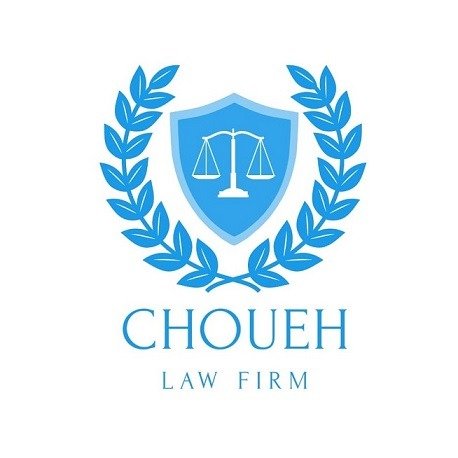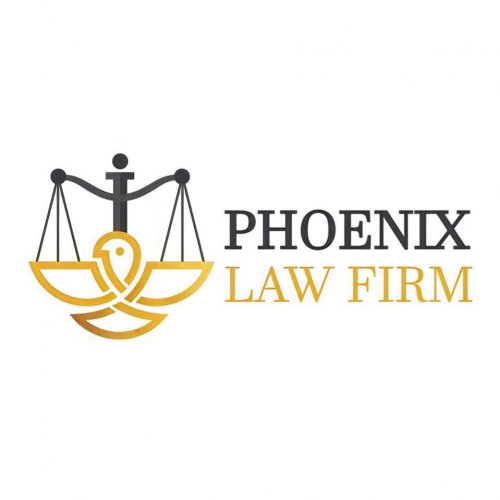Best Debt Capital Markets Lawyers in Beirut
Share your needs with us, get contacted by law firms.
Free. Takes 2 min.
List of the best lawyers in Beirut, Lebanon
About Debt Capital Markets Law in Beirut, Lebanon
Debt Capital Markets refer to the ecosystem through which governments, corporations, and other entities raise funds by issuing debt instruments like bonds, notes, or sukuks to investors. In Beirut, Lebanon, Debt Capital Markets play a critical role in financing public and private sector projects, optimizing capital structures, and enabling economic development. Legal frameworks and regulatory oversight are essential in ensuring confidence and transparency across transactions, helping both issuers and investors manage risks and fulfill obligations.
Why You May Need a Lawyer
Navigating the complexities of Debt Capital Markets in Beirut requires specialized legal expertise. You may need to consult a lawyer if you:
- Plan to issue or invest in bonds or notes
- Require help structuring a debt security compliant with local and international regulations
- Need regulatory approvals or licenses from Lebanese authorities
- Are facing disputes regarding payment, terms, or defaults on debt instruments
- Seek guidance on cross-border offerings and compliance with anti-money laundering laws
- Need due diligence services for potential investments or issuances
- Are a financial institution wishing to expand debt products or services
- Face restructuring, insolvency, or bankruptcy issues related to debt instruments
Local Laws Overview
The legal landscape of Debt Capital Markets in Beirut is shaped by various laws and regulations. The primary body of laws includes the Lebanese Code of Commerce, the Central Bank’s (Banque du Liban) circulars, and decrees from the Lebanese Capital Markets Authority (CMA). Key points include:
- Issuing entities must comply with disclosure, reporting, and registration requirements as defined by the CMA
- Specific approval is needed from Lebanese regulators for public offerings of debt securities
- For Islamic finance instruments, Shariah compliance must often be demonstrated
- There are rules to protect investors, regulate intermediaries, and ensure financial stability
- Taxation, currency controls, and anti-money laundering laws apply to all debt transactions
- Cross-border transactions may require additional compliance with foreign exchange and international securities regulations
- Market manipulation and insider trading are strictly prohibited and subject to legal penalties
Frequently Asked Questions
What are Debt Capital Markets?
Debt Capital Markets are platforms where governments, corporations, or organizations raise funds by issuing debt instruments such as bonds or notes to investors.
Who regulates Debt Capital Markets in Beirut?
The Lebanese Capital Markets Authority (CMA) and Banque du Liban are the main regulatory bodies overseeing the issuance and trading of debt securities in Lebanon.
What types of debt instruments are common in Beirut?
Common instruments include government sovereign bonds, corporate bonds, commercial papers, and occasionally Islamic finance instruments like sukuk.
Can foreign investors participate in Lebanon’s Debt Capital Markets?
Yes, foreign investors can participate, subject to local laws, registration, and possible restrictions on currency repatriation or certain industries.
What legal documentation is needed to issue a bond in Lebanon?
Core documents include the offering circular, subscription agreements, prospectus, trust deeds, and regulatory filings as required by the CMA.
What are the key risks involved in Debt Capital Markets?
Risks include default risk, market risk, currency/foreign exchange exposure, interest rate changes, and regulatory compliance challenges.
Are there taxation implications for investing in Lebanese bonds?
Yes, income from debt securities may be subject to taxation. It’s important to consult legal and tax advisors to understand current regulations.
How are disputes concerning debt instruments resolved?
Disputes are generally resolved through Lebanese courts or, when stipulated, through arbitration. Contractual terms and governing law are critical.
What role do lawyers play in a debt issuance process?
Lawyers assist with structuring the transaction, preparing documentation, ensuring regulatory compliance, and mitigating legal risks for all parties.
What should I check before investing in Lebanese debt securities?
Verify the issuer’s credibility, read prospectuses carefully, understand your rights and obligations, and consult qualified legal and financial advisors.
Additional Resources
For more information and support regarding Debt Capital Markets law in Beirut, consider contacting the following organizations:
- Lebanese Capital Markets Authority (CMA) - for regulatory guidance and market news
- Banque du Liban (Central Bank of Lebanon) - for circulars, monetary policy updates, and supervision
- Beirut Bar Association - for assistance in finding reputable legal professionals
- Chamber of Commerce, Industry and Agriculture of Beirut and Mount-Lebanon (CCIABML) - for market data and business support
Next Steps
If you need further guidance or legal assistance related to Debt Capital Markets:
- Assess your specific needs, whether it is bond issuance, investment, compliance, or dispute resolution
- Gather all relevant documents and background information
- Seek recommendations for experienced lawyers or firms specializing in capital market law in Beirut
- Schedule consultations to discuss your situation and understand your legal options
- Ensure that the lawyer you engage is registered with the Beirut Bar Association and has a strong track record in financial markets law
- Continue to monitor local regulatory updates to stay compliant with evolving laws and requirements
Legal counsel is crucial in the Debt Capital Markets sector in Beirut, and taking these steps can help protect your interests and ensure success in your financial endeavors.
Lawzana helps you find the best lawyers and law firms in Beirut through a curated and pre-screened list of qualified legal professionals. Our platform offers rankings and detailed profiles of attorneys and law firms, allowing you to compare based on practice areas, including Debt Capital Markets, experience, and client feedback.
Each profile includes a description of the firm's areas of practice, client reviews, team members and partners, year of establishment, spoken languages, office locations, contact information, social media presence, and any published articles or resources. Most firms on our platform speak English and are experienced in both local and international legal matters.
Get a quote from top-rated law firms in Beirut, Lebanon — quickly, securely, and without unnecessary hassle.
Disclaimer:
The information provided on this page is for general informational purposes only and does not constitute legal advice. While we strive to ensure the accuracy and relevance of the content, legal information may change over time, and interpretations of the law can vary. You should always consult with a qualified legal professional for advice specific to your situation.
We disclaim all liability for actions taken or not taken based on the content of this page. If you believe any information is incorrect or outdated, please contact us, and we will review and update it where appropriate.










